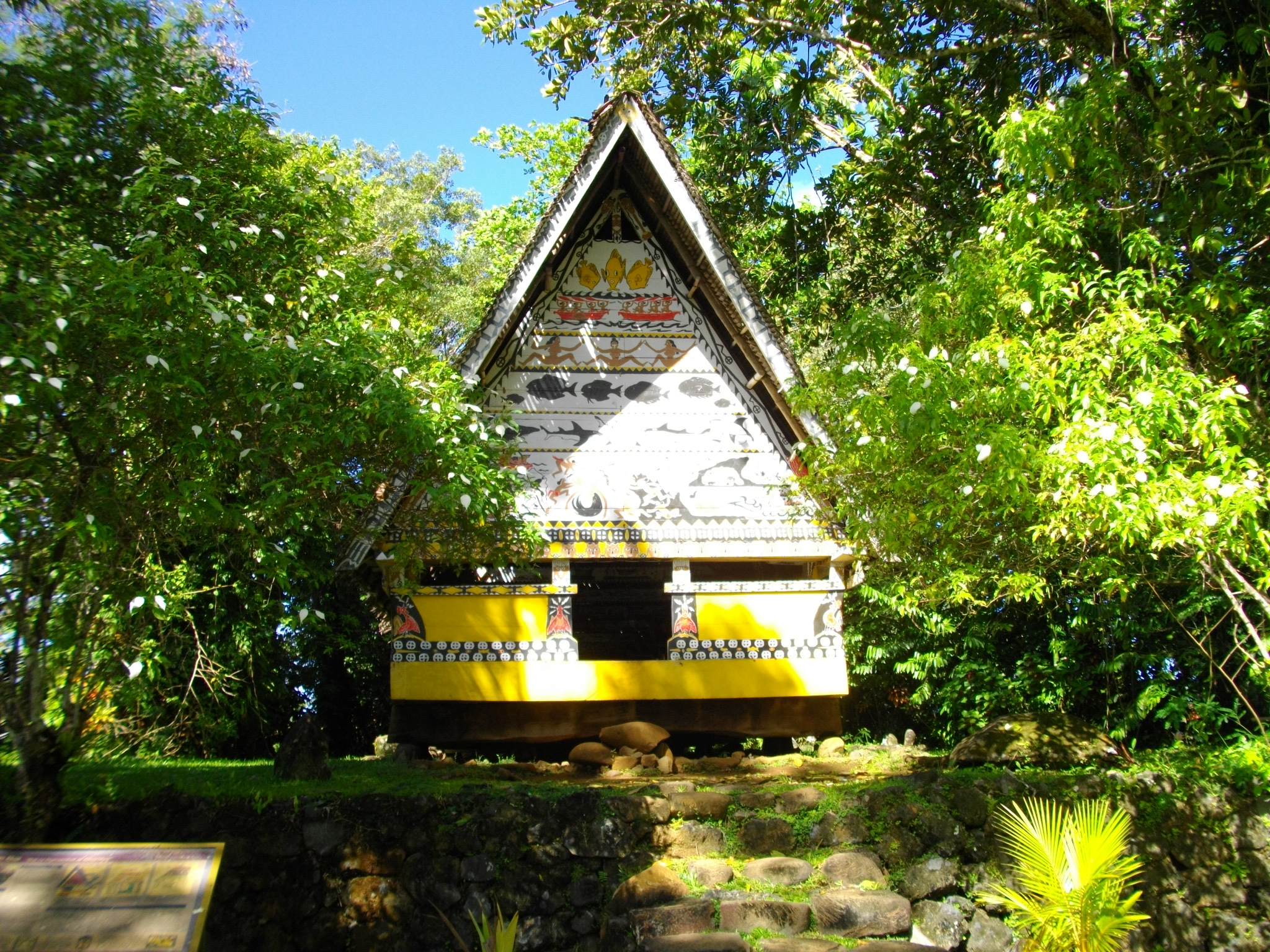 An example of a bai, a traditional Palauan meeting house, at the Belau National Museum. Photo credit: Wikimedia/Abasa (public domain)
An example of a bai, a traditional Palauan meeting house, at the Belau National Museum. Photo credit: Wikimedia/Abasa (public domain)
KEY FACTS
Freedom House Rating
Free
Government Type
Presidential Republic in free association with the US
Population
21,685 |
NEXT PALAU ELECTIONS
State Elections
Various
Presidential and Legislative Elections
November 2024 (due) |
PAST PALAU ELECTIONS
Presidential and Legislative Elections
November 3, 2020
State Elections
Various
|
Political Context
Palau held national elections for the president and legislature in November 2020. Additonally, Palau has 16 states, each of which elect a governor and a legislature.
State elections happen independently of national elections, and each state does things a bit differently. This year, seven states have elections: Sonsorol (February 28); Kayangel (May 26); Hatohobei (May 29); Ngiwal (July); Ngarchelong (August); Angaur (November); and Ngardmau (December).
Political Context
Palau is a free democracy. Although political parties are allowed, the country does not have them. Rather, candidates run as independents. In 2016, President Tommy Remengesau Jr narrowly won re-election – against his brother-in-law, Surangel Whipps Jr,. However, in the 2020 election, Whipps won, defeating incumbent vice president Raynold Oilouch.
Geopolitical Context
Palau is an independent country in free association with the United States, located strategically in the Pacific. Following World War I, Palau was ruled by Japan. It was the site of fighting between the United States and Japan during World War II, including the major battles of Angaur and Peleliu. The United States subsequently administered Palau until 1994, when Palau became independent.
Palau is one of fourteen countries with diplomatic relations Taiwan instead of the People’s Republic of China.
Curated News and Analysis
Radio New Zealand (November 6, 2020): Surangel Whipps Jr to be Palau’s new president
Kevin Chen, Taiwan News (November 5, 2020): Taiwan will continue expanding bilateral ties with Palau regardless of election outcome: MOFA
Stratfor (February 22, 2019): China Sets a Course for the U.S.’s Pacific Domain
Kate Lyons, The Guardian (September 7, 2018): ‘Palau against China!’: the tiny island standing up to a giant
Bruno Kaufmann, swissinfo.ch (February 19, 2018): How Palau’s archipelago forms a democratic whole
21votes does not necessarily agree with all of the opinions expressed in the linked articles; rather, our goal is to curate a wide range of voices. Furthermore, none of the individuals or organizations referenced have reviewed 21votes’ content, and their inclusion should not be taken to imply that they endorse us in any way. More on our approach here.
Updated November 20, 2020
Related
Palau Elections: Throughout 2020
Leave a Comment
Last Updated: November 21, 2020 by 21votes
Freedom House Rating
Free
Government Type
Presidential Republic in free association with the US
Population
21,685
State Elections
Various
Presidential and Legislative Elections
November 2024 (due)
Presidential and Legislative Elections
November 3, 2020
State Elections
Various
Political Context
Palau held national elections for the president and legislature in November 2020. Additonally, Palau has 16 states, each of which elect a governor and a legislature.
State elections happen independently of national elections, and each state does things a bit differently. This year, seven states have elections: Sonsorol (February 28); Kayangel (May 26); Hatohobei (May 29); Ngiwal (July); Ngarchelong (August); Angaur (November); and Ngardmau (December).
Political Context
Palau is a free democracy. Although political parties are allowed, the country does not have them. Rather, candidates run as independents. In 2016, President Tommy Remengesau Jr narrowly won re-election – against his brother-in-law, Surangel Whipps Jr,. However, in the 2020 election, Whipps won, defeating incumbent vice president Raynold Oilouch.
Geopolitical Context
Palau is an independent country in free association with the United States, located strategically in the Pacific. Following World War I, Palau was ruled by Japan. It was the site of fighting between the United States and Japan during World War II, including the major battles of Angaur and Peleliu. The United States subsequently administered Palau until 1994, when Palau became independent.
Palau is one of fourteen countries with diplomatic relations Taiwan instead of the People’s Republic of China.
Curated News and Analysis
Radio New Zealand (November 6, 2020): Surangel Whipps Jr to be Palau’s new president
Kevin Chen, Taiwan News (November 5, 2020): Taiwan will continue expanding bilateral ties with Palau regardless of election outcome: MOFA
Stratfor (February 22, 2019): China Sets a Course for the U.S.’s Pacific Domain
Kate Lyons, The Guardian (September 7, 2018): ‘Palau against China!’: the tiny island standing up to a giant
Bruno Kaufmann, swissinfo.ch (February 19, 2018): How Palau’s archipelago forms a democratic whole
21votes does not necessarily agree with all of the opinions expressed in the linked articles; rather, our goal is to curate a wide range of voices. Furthermore, none of the individuals or organizations referenced have reviewed 21votes’ content, and their inclusion should not be taken to imply that they endorse us in any way. More on our approach here.
Share this:
Related
Category: Overview Tags: Palau